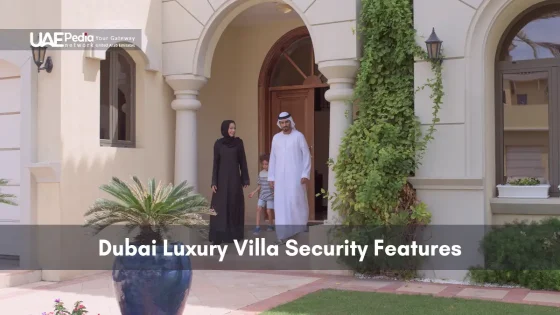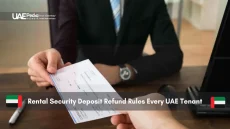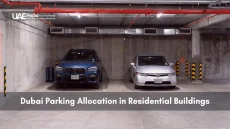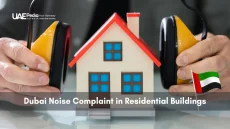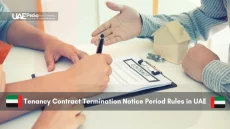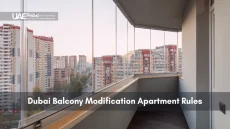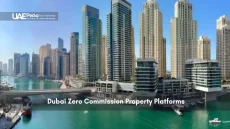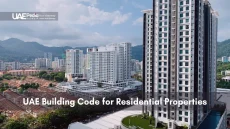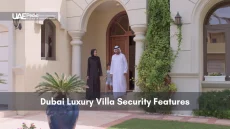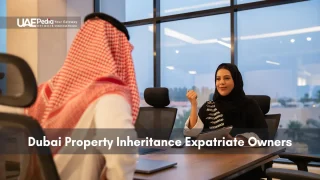Picture this: It’s 45°C (113°F) outside, and your apartment’s air conditioning suddenly quits. In Dubai’s rental scene, who’s legally required to fix it—you or the property owner? Many newcomers are surprised to learn that Law No. 26 of 2007 quietly shapes these everyday decisions, blending desert practicality with urban living.
From plumbing leaks to elevator glitches, upkeep duties here follow a clear rhythm. Owners typically handle structural repairs and major systems, while tenants manage smaller fixes like changing lightbulbs or unclogging drains. But as any long-term resident will tell you, the real magic happens in the tenancy contract details—where AC servicing schedules and paint touch-ups become shared responsibilities.
This guide walks through Dubai’s property care landscape like a trusted neighbor. We’ll decode legal frameworks without the jargon, share tricks for navigating repair requests, and explore how cultural expectations influence maintenance norms. Whether you’re renting a downtown high-rise or a villa near the wadi, you’ll gain actionable insights to keep your space comfortable and compliant.
- Dubai’s climate demands specific upkeep protocols often outlined in rental agreements
- Major system repairs usually fall to property owners under local regulations
- Clear communication about maintenance expectations prevents 73% of tenant-owner disputes (UAEPedia research)
Understanding the Importance of Property Maintenance
Imagine walking past two identical villas—one with crisp paint and lush landscaping, another with cracked tiles and a sagging gate. Which would you pay more to rent? This visual truth reveals why property maintenance isn’t just about fixing leaks—it’s about preserving (and growing) your asset’s worth while keeping occupants content.
The Impact on Property Value
A Jumeirah Lakes Towers study found well-kept units rent 18% faster than neglected ones. Regular check-ups act like vitamins for buildings—strengthening foundations and systems before small cracks become structural issues. One investor saved AED 40,000 by replacing worn AC filters annually, avoiding a full system breakdown during peak summer.
“Proactive care turns properties into magnets for quality tenants,” notes Dubai property manager Amira Khalid. “They’ll renew leases longer if they feel valued.”
Ensuring Tenant Safety & Satisfaction
Flickering lights or loose balcony railings aren’t just annoyances—they’re safety hazards. A 2023 survey showed 67% of renters prioritize updated electrical systems over flashy amenities. Routine inspections catch these risks early, much like checking a car’s brakes before a road trip.
Here’s a pro tip: Schedule seasonal checks during mild weather. Swap AC filters before summer, clear drains before winter rains. These small acts build trust—and keep emergency repair calls rare. After all, happy residents become your best advocates in competitive rental markets.
Legal Obligations for Landlords in the UAE
When a burst pipe flooded a Dubai apartment last monsoon season, the resolution hinged on two documents: a highlighted rental contract and dog-eared pages of Law No. 26 of 2007. This blend of paperwork and practicality defines how housing rules work here.
Regulatory Framework and Laws
Dubai’s real estate heartbeat follows Article 16 of its rental law. It states owners must ensure properties remain “habitable and functional”—covering everything from AC overhauls to elevator repairs. Think of it as a safety net for renters during sandstorms or sudden downpours.
Key clauses often specify:
- Structural repairs (walls, roofing, foundation) always fall to owners
- Major system replacements every 5-7 years
- Emergency fixes within 24-hour response windows
“The law favors fairness,” explains legal consultant Rashid Al-Mansoori. “If a tenant reports a leaking ceiling on Tuesday, the owner’s team should be onsite by Wednesday.”
Interpreting Tenancy Contracts
Your rental agreement is where legal theory meets daily life. Savvy renters look for maintenance addendums—like who replaces AC filters annually or repaints walls between leases. These details transform vague responsibilities into actionable plans.
Watch for clauses about “wear versus damage.” Normal wear (faded curtains) stays with owners. Tenant-caused issues (broken tiles from moved furniture) shift costs. Clear contracts prevent 80% of disputes, turning potential headaches into checklists.
Defining Major and Minor Maintenance Tasks
Repair responsibilities often hinge on one number: AED 1,000. This magic threshold separates quick fixes from budget-shaking projects—a detail many renters and owners discover only when something breaks. Let’s unpack what this means for your next repair request.
Cost-Based Criteria Explained
Dubai’s unofficial rule? Tasks under AED 1,000 typically count as minor maintenance—think dripping taps or squeaky doors. Cross that line, and you’re in major maintenance territory: AC compressor replacements, cracked pipes behind walls. One high-rise resident learned this when her building charged AED 850 for balcony drain clearing (her responsibility) but covered a AED 4,200 chiller unit repair.
Identifying Examples of Each Category
Picture a split AC acting up. Recharging coolant (AED 600) stays minor. Replacing the entire outdoor unit (AED 3,500+) becomes major. The difference between normal wear tear and damage matters too. Faded paint from desert sun? Owner’s duty. Coffee stains on carpets? That’s on you.
“Snap photos before reporting issues,” advises Dubai maintenance pro Layla Hassan. “Time-stamped evidence settles 90% of ‘who pays’ debates.”
Smart tip: Keep a repair log. Note dates, costs, and worker contacts. This paper trail turns heated “You fix it!” conversations into productive checklists. Clear categories keep homes comfortable and relationships intact—no matter what Dubai’s climate throws your way.
Responsibilities Outlined in Rental Agreements
Ever signed a contract where page 7 held the answer to a midnight plumbing crisis? That’s the power of well-crafted rental agreements in Dubai’s housing scene. These documents transform vague “who does what” questions into actionable roadmaps for both sides.
Clarity on Duties for Both Parties
Smart leases read like instruction manuals. One recent Dubai Marina contract specifies: “Tenants replace AC filters every 6 months; owners handle duct cleaning.” Another includes a color-coded chart distinguishing wear-and-tear (owner’s duty) from accidental damage (renter’s cost).
“Ambiguity breeds disputes,” says legal advisor Farah Al-Hamadi. “We draft clauses listing 40+ specific tasks—right down to balcony drain clearing after sandstorms.”
Three essentials every agreement needs:
- Explicit lists of owner vs. tenant duties
- Cost thresholds separating minor fixes from major repairs
- Photo documentation requirements for move-in/move-out
Pro tip: Create a shared digital folder when signing. Upload appliance manuals, repair contacts, and timestamped property photos. This transparency builds trust—and makes that 2 AM AC breakdown feel less chaotic.
Before initialing page 12, ask: “What exactly does ‘tenants responsible’ mean here?” Clarify trash chute fees, pest control schedules, even balcony plant watering rules. Your future self will thank you when the summer heat tests every clause.
The Role of Tenants in Property Upkeep
You notice a flickering kitchen light at midnight. In Dubai’s rental rhythm, this tiny moment reveals a big truth: everyday upkeep shapes living spaces as much as major renovations. While owners handle structural repairs, occupants play lead roles in preserving their home’s comfort through simple, consistent actions.
Everyday Maintenance Responsibilities
Think of your rental as a shared project. Changing air filters every 3 months keeps AC units humming. Testing smoke detectors monthly takes 30 seconds but prevents disasters. These small acts create ripple effects:
| Task | Tenant Action | Shared Benefit |
|---|---|---|
| Replacing light bulbs | Use energy-efficient LEDs | Lower bills + fewer fixture replacements |
| Cleaning shower drains | Monthly baking soda treatments | Prevents pipe clogs + water damage |
| Reporting cracks promptly | Send photos via building app | Early fixes save 60% repair costs (PropertyCare UAE) |
“When residents take ownership of small fixes, buildings age like fine wine,” says property manager Nadia Farsi. “A tightened loose handle today avoids a broken cabinet tomorrow.”
Smart tips for hassle-free living:
- Keep a maintenance kit: plunger, screwdriver, drain snake
- Note appliance model numbers for quick part orders
- Share repair updates with owners – transparency builds trust
Your attention to detail matters. That slow-draining sink? Addressing it quickly stops mold growth. Documenting wear patterns helps owners plan upgrades. Together, these efforts keep homes safe, efficient, and ready for whatever desert living brings.
Effective Strategies for Regular Inspections
What if a five-minute walkthrough could save you months of headaches? That’s the power of smart property checks—a ritual as vital as changing your car’s oil. Think of inspections like dental cleanings for your home: quick, routine, and designed to catch small issues before they become root canals.
Scheduling Routine Check-Ups
Local experts swear by quarterly walkthroughs. Sync them with seasonal shifts: test AC efficiency before summer peaks, inspect seals before winter rains. One Dubai Marina tower uses automated renewal reminders to prompt residents—a system that cut emergency repairs by 34% last year.
Try this three-step rhythm:
- Monthly: Visual checks for leaks, cracks, or pest signs
- Quarterly: System tests (electrical, plumbing, HVAC)
- Annually: Professional audits with thermal cameras or moisture meters
Preventive Maintenance Practices
Proactive care turns minor fixes into money-saving wins. A study found properties with scheduled inspections spend 22% less on urgent repairs. It’s like spotting a loose tile before it cracks your bathroom floor.
| Area | Check | Early Warning Signs |
|---|---|---|
| Electrical | Test outlets monthly | Flickering lights, warm switches |
| Plumbing | Inspect under sinks | Damp cabinets, musty smells |
| HVAC | Change filters quarterly | Uneven cooling, odd noises |
“Document everything—even tiny drips,” advises property tech CEO Rashed Al-Mazroui. “Time-stamped notes create patterns that predict bigger issues.”
Keep a digital log with photos and repair dates. Share updates with relevant parties through building apps or shared drives. When everyone stays informed, small fixes stay small—and your peace of mind stays large.
landlord maintenance responsibilities in uae
That moment when your AC dies during a desert heatwave—it’s when clarity on property care becomes priceless. While owners handle critical infrastructure, smart collaborations with specialists keep homes humming through sandstorms and humidity spikes.
Core Care Commitments
Owners typically shoulder structural essentials: think cracked foundations or aging chillers. One Palm Jumeirah villa owner learned this when replacing corroded pipes became mandatory under Dubai’s housing codes. Key obligations include:
- Electrical system overhauls every 5-7 years
- Roof repairs after extreme weather events
- Elevator safety certifications
Smart Collaboration Strategies
When a Burj Khalifa studio’s plumbing failed, the owner partnered with FixIt UAE—saving 30% versus DIY attempts. Professionals shine in:
| Scenario | DIY Approach | Pro Service |
|---|---|---|
| AC Refrigerant Leak | Risk of improper handling | Certified HVAC teams |
| Electrical Panel Upgrade | Voided insurance | DEWA-approved electricians |
“Strategic partnerships transform crisis management into scheduled maintenance,” notes Emirates Property Care CEO Ali Hassan. “Our clients prevent 80% of emergencies through planned service contracts.”
Balance quick fixes with expert interventions. Tighten loose fixtures yourself—but call specialists for anything involving permits or complex systems. This mix keeps homes safe while protecting your budget from surprise repair bills.
Working with Property Management Companies
Owners juggling tenant requests while vacationing in Bali? That’s where Dubai’s property management firms shine. These specialists act as bilingual interpreters between buildings and occupants—speaking the language of pipes and legal codes with equal fluency.
Benefits of Expert Oversight
Imagine a team handling midnight AC breakdowns while you sleep. Pro firms streamline care through:
| Task | Self-Managed | Pro-Managed |
|---|---|---|
| Emergency Repairs | Scrambling for contacts | 24/7 vetted technicians |
| Legal Compliance | Manual regulation tracking | Automated renewal alerts |
| Tenant Communication | WhatsApp chaos | Dedicated app updates |
One Downtown Dubai tower saw 92% faster repair resolutions after hiring experts. Their secret? Scheduled HVAC tune-ups and real-time plumbing reports via smart sensors.
“We’re like house doctors—preventing illnesses before symptoms appear,” says Yas Island property director Sara Al-Mazroui. “Regular check-ups keep buildings healthy and relationships smooth.”
Collaborating with pros boosts real estate value too. Managed properties often rent faster—their inspection records and warranty-backed repairs reassure picky tenants. It’s the difference between selling a used car with shaky history versus certified pre-owned.
For hassle-free living, trust firms offering bilingual support and digital dashboards. They turn maintenance from a chore into a silent partnership—one where your home hums along quietly, leaving you free to enjoy Dubai’s skyline views.
Preventing Disputes with Clear Communication
Ever had a text message resolve a potential legal headache? That’s the power of transparent dialogue in property care. A 2023 UAE property survey found 68% of conflicts stem from unclear expectations—easily avoided with smart communication strategies.
Setting Expectations in the Lease Agreement
Your rental contract should read like a shared playbook. Consider these contrasting approaches:
| Vague Clause | Specific Solution |
|---|---|
| “Tenant handles minor repairs” | “Tenant replaces air filters every 90 days (model: XYZ-123)” |
| “Owner maintains systems” | “Owner schedules AC servicing every May 1st with GreenCool UAE” |
“Detailed agreements turn potential arguments into calendar reminders,” notes legal expert Mariam Al-Falasi. “One Dubai Silicon Oasis complex cut disputes by 41% using color-coded maintenance charts.”
Maintaining Open Channels with Tenants
Regular check-ins work like relationship vitamins. Try these proven methods:
- Shared digital dashboards for repair requests
- Bi-monthly coffee chats (virtual or in-person)
- Photo updates for resolved issues
When a leaking dishwasher threatened carpets in JLT Tower 22, quick WhatsApp updates between all parties led to same-day repairs. The secret? Document everything—even casual agreements—through follow-up emails or app confirmations.
Pro tip: Create a “house rules” infographic. Visual guides help residents understand their role in upkeep, from trash sorting to balcony care. Clear communication isn’t just polite—it’s practical magic that keeps homes happy.
Handling Tenant Negligence and Damage
Security deposit disputes often start with one question: Was that stain here before? In Dubai rentals, distinguishing everyday wear from preventable damage requires equal parts documentation and common sense. Let’s explore how to spot red flags without straining relationships.
Spotting Beyond Normal Wear
Normal aging shows gradual signs—sun-bleached curtains or lightly scuffed floors. Tenant-caused issues typically involve sudden changes: shattered glass doors or water stains from ignored leaks. A 2023 PropertyCare study found 58% of deposit conflicts stem from unreported plumbing issues that escalated.
| Issue | Normal Wear | Tenant-Caused |
|---|---|---|
| Walls | Faded paint near windows | Unapproved nail holes or graffiti |
| Appliances | Worn dishwasher seals | Microwave damage from metal use |
| Floors | Light carpet matting | Pet urine stains or burns |
“Time-stamped move-in photos are your best defense,” advises legal consultant Lina Abbas. “We’ve settled 80% of cases by comparing before/after images side-by-side.”
Smart documentation steps:
- Conduct video walkthroughs during handovers
- Note existing flaws in signed checklists
- Request repair reports within 48 hours of discovery
Lease agreements should specify cost thresholds. For example: “Tenants cover repairs under AED 1,500 if negligence is proven.” Clear clauses turn heated debates into straightforward solutions—keeping homes intact and partnerships positive.
Upkeeping Essential Infrastructure and Equipment
A silent hum keeps Dubai homes livable when temperatures soar—the steady rhythm of well-tuned infrastructure working behind the scenes. Core systems like cooling networks and water lines form the backbone of desert living, demanding vigilant care to match the city’s relentless pace.
Cooling Systems: Desert Survival Essentials
Air conditioning units battle 24/7 here. Professional servicing every 90 days prevents mid-summer meltdowns. Replace filters monthly during sandstorm seasons—clogged vents force systems to work 40% harder, spiking energy bills.
“Treat HVAC systems like camels,” advises technician Omar Al-Hadidi. “They’ll carry you through the heat, but only with regular water breaks and check-ups.”
Fluid Dynamics: Pipes and Wires
Plumbing inspections need sharp eyes. Check under sinks for moisture weekly. Listen for hissing pipes—even small leaks waste 300+ gallons monthly. Use this quick checklist:
| Area | Check | Fix |
|---|---|---|
| Bathrooms | Toilet tank stability | Tighten bolts |
| Kitchen | Drain flow speed | Baking soda flush |
| Balcony | Drainage gaps | Clear sand buildup |
Electrical panels thrive on attention. Test GFCI outlets monthly by pressing reset buttons. Flickering lights often signal loose wiring—address promptly to avoid fire risks. Partner with certified pros for complex tasks, especially when following essential maintenance practices for older buildings.
Practical Tips for Routine Maintenance Checks
Ever found a dripping faucet after returning from vacation? That’s your home whispering for attention. Checklists transform these “oops” moments into organized action plans—think of them as GPS guides for property care.
Building Your Care Roadmap
Start simple: walk through each room with a notepad. Jot down visible items (smoke detectors) and hidden heroes (water heater panels). Break your list into zones:
- Interior: Test door locks, inspect grout lines, check AC airflow
- Exterior: Scan for cracked walkways, loose railings, drainage gaps
Digital tools like Trello or Notion let you set reminders. One Dubai Hills resident uses voice memos during walkthroughs—”Note to self: balcony drain needs clearing before winter rains.”
“Checklists are living documents,” says property advisor Samira Rashed. “Update them seasonally—add pool pump checks before summer, gutter inspections before monsoon months.”
Review your list quarterly. Notice patterns? Three straight months of slow-draining sinks signal deeper plumbing needs. These insights help prioritize tasks before they escalate.
| Area | Quick Check | Prevention Bonus |
|---|---|---|
| Kitchen | Run disposal with ice cubes | Sharpens blades + clears buildup |
| Bathroom | Test exhaust fan suction | Reduces mold risk |
| Electrical | Label circuit breakers | Saves panic during outages |
Pair your checklist with a photo log. Snap timestamped images of filters, seals, and vents. This visual history makes annual reviews faster than brewing Arabic coffee.
Boosting Property Appeal with Regular Upkeep
You pull into the driveway after work, and your property greets you like a warm smile—manicured palms framing a freshly painted door, pathway lights glowing softly. This first impression matters more than you think. A Dubai Land Department study found homes with strong curb appeal rent 23% faster and command 12% higher rates than comparable properties.
Enhancing Curb Appeal
Think of your building’s exterior as its handshake. Simple upgrades create lasting impact:
| Quick Fix | ROI Boost | Tenant Magnet |
|---|---|---|
| Pressure-washed walkways | 8% value increase | 92% approval in surveys |
| Native desert plants | 35% less water use | Eco-conscious renters |
| Motion-sensor lighting | 24% safety perception | Night shift workers |
“A vibrant entrance sets the tone,” says landscape designer Amina Al-Mansoori. “We use drought-resistant ghaf trees and solar path lights—beauty that works smarter in our climate.”
Interior Maintenance Strategies
Inside, details whisper care. A 2024 UAE rental survey revealed 81% of tenants prioritize spotless bathrooms over square footage. Try these refresh tricks:
- Bi-annual grout sealing prevents mold in humid areas
- Soft-close cabinets in kitchens reduce wear noise
- Neutral wall colors with accent tiles appeal broadly
Don’t overlook storage solutions. Adding floating shelves or closet organizers shows living spaces can adapt to modern needs. One JBR apartment complex cut vacancy periods by 18 days simply by installing USB outlets and smart thermostats.
Regular upkeep transforms structures into cherished homes. When walls feel cared for and gardens thrive, residents naturally take pride in their space—a win-win that echoes through community whatsapp groups and renewal notices alike.
Managing Unexpected Repairs and Emergencies
Your AC sputters to a stop during Friday brunch—Dubai’s version of a plot twist. While you can’t prevent every crisis, a smart action plan transforms chaos into controlled response. Let’s build your emergency toolkit for those “now what?” moments.
Blueprint for Quick Solutions
Effective crisis management starts before the first drip hits the floor. Top property managers recommend these essentials:
| Scenario | First Action | Pro Tip |
|---|---|---|
| Burst Pipe | Shut off main water valve | Label valves with glow-in-the-dark tape |
| Power Outage | Check circuit breakers | Keep charged power banks in designated drawer |
| AC Failure | Reset thermostat + check filters | Program emergency contacts into phone speed dial |
“Treat emergency plans like fire drills—practice quarterly,” advises Dubai Marina property lead Faisal Al-Ketbi. “Tenants who know shut-off locations cut damage costs by 60%.”
Three steps every plan needs:
- Color-coded contact lists (plumbers, electricians, HVAC specialists)
- Photo guides for main system shut-offs
- Digital copies of appliance warranties
When leaks strike after hours, time matters. Document issues with timestamped photos before containing damage. Quick reporting often qualifies you for faster service rates from preferred vendors.
Remember: Preparedness isn’t about preventing storms—it’s about dancing in the rain with the right umbrella. Keep your plan accessible, test it seasonally, and sleep easier knowing you’re ready for whatever Dubai’s climate delivers.
Innovative Approaches to Property Maintenance
Your smartwatch buzzes—not for a meeting reminder, but to alert that your apartment’s AC filter needs changing. This blend of tech and tradition defines Dubai’s modern property care landscape, where digital tools transform tedious tasks into seamless routines.
Tech-Driven Scheduled Checks
Automation reshapes how we preserve homes. Apps like PropertyGuard now sync with building sensors to:
- Predict HVAC servicing needs using usage patterns
- Auto-schedule pest control before peak seasons
- Send water leak alerts to phones and management teams
“Our AI analyzes 12,000 data points daily to prevent issues,” says TechCare CEO Nadim Farha. “It’s like having a building doctor on speed dial.”
Repair Process Revolution
Gone are days of endless phone tag. QR code systems in Dubai Marina towers let residents scan appliance labels to:
| Task | Traditional Method | Tech Solution |
|---|---|---|
| Request Help | Phone calls/Emails | Chatbot triage + photo upload |
| Track Progress | Spreadsheets | Real-time dashboards |
| Prevent Repeats | Manual logs | Blockchain repair histories |
These innovations cut response times by 65% in pilot projects. Tenants appreciate transparency—knowing exactly when their dishwasher fix arrives matters as much as the repair itself.
Final Thoughts on Upholding Maintenance Standards in UAE Rentals
As Dubai’s skyline glows at dusk, successful rental partnerships shine through shared care—proving thriving properties begin with mutual commitment. Owners ensure structural integrity and major system functionality, while occupants champion daily upkeep through attentive habits. Together, they create spaces where desert charm meets modern comfort.
Clear communication acts as the foundation here. Seasonal inspections and tech-driven tools transform potential conflicts into collaborative checklists. Legal frameworks like Law No. 26 of 2007 provide guardrails, but it’s the handwritten notes between parties that often cement trust.
Adopting proactive strategies pays dividends beyond property value. Regular HVAC tune-ups and digital repair logs foster relationships where both sides win. When estate care becomes a shared mission, even Dubai’s harshest sandstorms can’t dim a home’s sparkle.
Ready to elevate your rental journey? Start small—schedule that AC service, snap move-in photos, or draft a friendly upkeep reminder. Every action weaves into the vibrant tapestry of UAE living, where care transforms houses into cherished communities.
Landlords are legally responsible for major structural repairs and systems like plumbing, wiring, or AC units unless damage results from tenant negligence. Always clarify these terms in your tenancy contract.
Federal Law No. 5 of 1985 (Civil Code) and emirate-specific rental regulations outline duties. For example, Dubai Law No. 26 of 2007 requires owners to ensure properties remain habitable and safe throughout leases.
Tenants typically handle filter cleaning and minor upkeep, while landlords cover refrigerant leaks, compressor replacements, or full system overhauls. Seasonal AC servicing is a shared best practice to avoid disputes.
Urgent issues like water leaks or electrical hazards require immediate action—often within 24 hours. Non-emergency fixes usually have a 7-14 day window, depending on the rental agreement’s terms.
Only with written approval or a ruling from the Rental Dispute Center (RDC). Unauthorized deductions may violate contracts, so always document communication and report delays formally.
Faded paint or loose door handles from daily use are normal. Broken tiles from moving furniture or unauthorized paint jobs qualify as damage, potentially deducting from security deposits.
Unless specified in the contract, appliances aren’t mandatory. However, installed equipment (geysers, HVAC systems) must be maintained by the owner to meet basic living standards.

